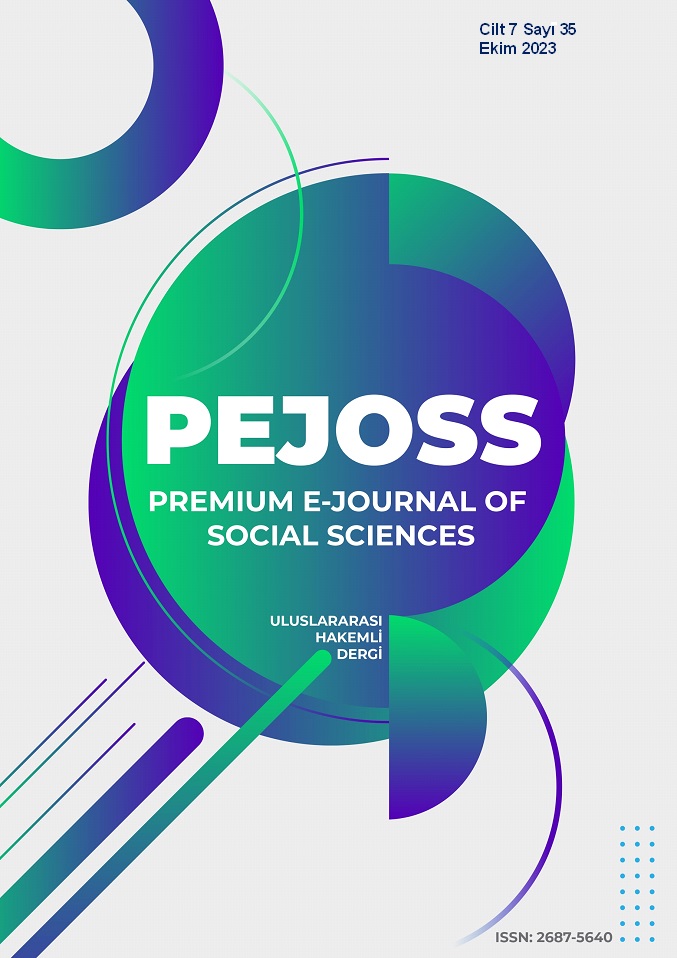A Critical Look At Organizational Studies Based on Positivist Epistemology
DOI:
https://doi.org/10.5281/zenodo.10035584Keywords:
Positivism, Epistemology, Organizational StudiesAbstract
The relationship between the data obtained by the researcher and the theories has been discussed by philosophers for many years. According to Arthur Conan Doyle, creating a theory without having data is a big mistake. Besides, people start collecting data without a specific theoretical basis, and this is also a big mistake. Indeed, the philosophical foundations of research are of great importance in the design and evaluation of organizational studies. Every study, whether natural science or social science research, is built on these philosophical foundations, known as ontological and epistemological assumptions. Ontology refers to the researcher's assumptions about the nature of reality. Epistemology refers to the assumptions made about the nature of knowledge and the ways of acquiring knowledge. In other words, it involves the assumptions we make about how we know what we know. Organizational studies are within the scope of social sciences. Thus, in this study, epistemological assumptions will be discussed within the framework of social sciences. In fact, epistemology has formed the basis of ongoing discussions in the social science community about the design of research and how to obtain accurate information. Advocates of positivism and social constructivism, two opposing assumptions, have to some extent stereotyped researchers on the opposite side. In this study, positivism, one of the main epistemological approaches that forms the basis of the patterns of organizational studies within the scope of social sciences, will be critically discussed.
Downloads
References
Balkız, B. (2004). Frankfurt Okulu ve eleştirel teori: Sosyolojik pozitivizmin eleştirisi. Sosyoloji Dergisi, 13(12), 135–158.
Berger, P. L. & Luckmann, T. (1967). The Social Construction of Reality. Penguin Books Limited.
Bhaskar, R. (1989) Reclaiming Reality. Verso.
Blaikie, N. (1993) Approaches to Social Enquiry. Blackwell Publishers.
Blaikie, N. (2008) Approaches to Social Enquiry. Blackwell Publishers.
Bryman, A. (2008) Social Research Methods. Oxford University Press.
Bryman, A. , Bell, E. (2007) Business Research Methods, Oxford Universit Press.
Burrell, G. and Morgan, G. (1979) Sociological Paradigms and Organizational Analysis. Heinemann.
David, M. and Sutton D. C. (2004) Social Research the Basics. Sage publications ltd.
Demir, S.A. (2009). Sosyal bilimlere eleştirel bir bakış: Frankfurt okulu ve pozitivizm eleştirisi. SAÜ Fen Edebiyat Dergisi, (1), 59–73.
Donaldson, L. (2003) Organization Theory as Positive Science, in Tsoukas, H. and Knudsen, C. (eds.) The Oxford Handbook of Organization Theory. Oxford University press Pp. 39 – 62.
Conan Doyle, A. (1891). A scandal in Bohemia. The Adventures of Sherlock Holmes, 5-29. CreateSpace Independent Publishing Platform
Smith, M. J. (1998) Social Science in Question. Milton Keynes, The Open University with Sage Publications.
Smith E., M., Jaspersen, L. J., Thorpe, R., & Valizade, D. (2021). Management and business research. Sage.
Fırat, N. Ş. (2006). Pozitivist yaklaşımın eğitim yönetimi alanına yansıması, alana getirdiği katkı ve sınırlılıkları. Dokuz Eylül Üniversitesi Buca Eğitim Fakültesi Dergisi, 20, 40-51.
Herzberg F. (1968). One more time: How do you motivate employees? Harvard Business Review, 63(6) pp.53-62.
Keat, R. and Urry, J. (2001). Bilim Olarak Sosyal Teori [8. Baskı] (Çeviren: Nilgün Çelebi), Imge Kitabevi.
Kelly, J.E. (1992). Does job re-design theory explain job re-design outcomes? Human Relations, 45(8), pp.753-774.
Outhwaite, W. (1975) New Philosophies of Social Science: Realism, Hermeneutics and Critical Theory London: Macmillan cited in Blaikie, N. (1993) Approaches to Social Enquiry. Blackwell Publishers.
Rynes, S.L., Gerhart, B. and Minette, K.A. (2004). The importance of pay in employee Motivation: discrepancies between what people say and what they do. Human Resource Management, 43, 381-394.
Saunders, M., Lewis P. , Thornhill A. (2007) Research methods for business students. Pearson Education Limited.
Schutz, A. (1962). Collected Papers: The Problem of Social Reality. Martinus Nijhof.
Smith, M. J. (1998) Social Science in Question, Milton Keynes, The Open University with Sage Publications.
Tar Z. (1977), The Frankfurt School-The Critical Theories of Max Horkheimer and Thedor W. Adorno, A Wiley-İnterscience Publication, New York, s:10.
Vroom, V. (1964). Work and motivation. John Wiley and Sons.
Yanık, A. (2010). Akademik Görüş: Pozitivist Modern Bilimsel Yaklaşımın Eleştirisi. Seyahat ve Otel İşletmeciliği Dergisi, 7(3), 79-82.
Yıldırım, A. ve Şimşek, H. (1999). Sosyal Bilimlerde Nitel Araştırma Yöntemleri. Seçkin Yayınevi.
Downloads
Published
How to Cite
Issue
Section
License
Copyright (c) 2023 Premium e-Journal of Social Science (PEJOSS)

This work is licensed under a Creative Commons Attribution 4.0 International License.


